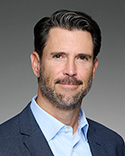
Michael Lastowski

Christopher Winter
In a rare case, the Delaware Chancery Court recently interpreted the federal Bankruptcy Code to determine that it has subject-matter jurisdiction over a dispute regarding intellectual property rights abandoned by a debtor in bankruptcy in Spiro v. Vions Technology, No. 8287-VCP (Del. Ch. March 23, 2014).
Chancery Court Vice Chancellor Donald F. Parsons Jr. ruled that under Section 554 of the Bankruptcy Code, the interests of bankruptcy debtor Ionsep Corp. in certain valuable intellectual property had been abandoned to Ionsep creditor Alan Spiro. Thus, Spiro could bring suit against Vions Technology Inc. for the alleged fraudulent conveyance and conversion of the IP and misappropriation of trade secrets.
By finding that the trustee of the Ionsep estate had made a valid abandonment of the IP to Spiro, Parsons further found that the Chancery Court had subject-matter jurisdiction over the dispute and the automatic stay of the Bankruptcy Code was not applicable.
The dispute arose out of technologies developed by Daniel Vaughan, a retired DuPont scientist. Vaughan founded Ionsep and developed valuable technologies and patents relating to chemical processes for substances such as chromium hypophosphite and manganese hypophosphite. Parsons did not rule on the definitive scope of the IP belonging to Ionsep, but he did hold that the IP consisted of (at a minimum) patents and other IP transferred to Ionsep via a licensing agreement.
On Jan. 20, 2010, after Vaughan's death, creditors, including Spiro, successfully put Ionsep into an involuntary Chapter 7 bankruptcy.
Spiro alleged that, prior to his death, Vaughan caused the IP to be transferred to Vions, an entity that Spiro contended was controlled by family members of Vaughan.
All of the directors and officers of Ionsep were relatives of Vaughan. Spiro, who became a shareholder in 2008, was the only nonfamily member who was a shareholder. Spiro also loaned more than $1.5 million to Ionsep between 1991 and 2008. During the bankruptcy, Spiro also took assignment of approximately $300,000 in secured debt from another creditor.
In February 2012, the trustee, with bankruptcy court approval, purportedly abandoned all remaining assets of the estate to Spiro. The trustee reasoned that Spiro's lien in the assets of up to $300,000 exceeded the value of the assets, which meant that the assets had no value to the estate. The trustee then filed a final report in the case in November 2013.
In March 2013, Spiro filed suit against Vions, alleging a fraudulent conveyance, conversion and misappropriation of trade secrets. Spiro sought a return of the IP rights at issue, an injunction against further disposition of the IP and recovery of profits made and funds raised in connection with the IP.
On Oct. 28, 2005, Vaughan purported to assign all of his rights in his present and future patents to Vions. The stated consideration was $1 per patent. Notwithstanding confusing facts relating to ownership and transfers of the patents, Parsons found that through a licensing agreement that predated any transfer of the IP to Vions, Vaughan had provided to Ionsep important rights in the IP, including technical information, know-how and improvements. In addition, the license was exclusive and gave Ionsep the right to sublicense the technology.
Vions sought to have the case dismissed for lack of subject-matter jurisdiction under Federal Rule of Civil Procedure 12(b)(1), or stayed pursuant to the automatic stay of Section 362 of the Bankruptcy Code.
Vions argued that the IP remained property of the Ionsep bankruptcy estate because it was not validly abandoned. Vions reasoned that because the IP was not listed in the schedules of assets of Ionsep in the bankruptcy, it could not then subsequently be abandoned. Vions also argued that the IP was not properly abandoned under Section 554 of the Bankruptcy Code because of a lack of notice to creditors. Thus, Vions reasoned, Spiro as a mere creditor did not have standing to bring a direct suit against Vions and the case should be dismissed.
Vions also asserted that the proceeding was stayed by the automatic stay and that the question of whether Ionsep ever owned the IP was a threshold issue to be determined by the bankruptcy court, which, according to Vions, had exclusive jurisdiction.
Vions also argued that the abandonment notice was not specific enough to accomplish a valid abandonment.
Parsons found that the trustee had the ability under Section 554(a) of the Bankruptcy Code to abandon any property of the estate determined to have inconsequential value to the estate. Such notice would be effective under the statute so long as sufficient notice was given to creditors. Parsons held that the notice here was adequate in that it stated that the trustee was abandoning "the estate's interest in all assets not previously abandoned" and specifically identified "all executory contracts." In addition, the trustee had previously filed several motions to extend time to assume or reject executory contracts in which he stated that the estate's ability to use the IP was its only valuable asset. Thus, "the language in the notice along with the motions to extend gave creditors sufficient notice of the nature and scope of the property that the trustee was abandoning to Spiro."
The court also rejected Vions' argument that the ongoing dispute as to what IP rights Ionsep held, if any, precluded the abandonment, and that exclusive jurisdiction on that issue sat with the bankruptcy court. Parsons rejected that argument, finding that the trustee of the Ionsep estate abandoned to Spiro all of Ionsep's interests in the IP, whatever the contours of those interests may be. Accordingly, the judge found that because there was no estate property at issue, the automatic stay was not applicable.
Michael R. Lastowski is a member of Duane Morris and the head of its Wilmington office. Licensed to practice in Delaware, Pennsylvania and New York, he primarily represents Chapter 11 Debtors.
Christopher M. Winter, a partner with the firm, is a Delaware business lawyer who focuses his practice on Chapter 11 bankruptcy law and proceedings, commercial and corporate finance and transactions, and Delaware corporate and alternative entity law.
Reprinted with permission from Delaware Business Court Insider, © ALM Media Properties LLC. All rights reserved.









